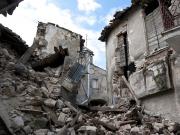The International Space Station (ISS) is currently orbiting the earth at an altitude of more than 400 kilometres, and there, the astronaut crew is conducting various experiments for the betterment of mankind.
Now, a team of astronauts is trying to grow human tissues in the ISS after receiving human stem cells in the earth's orbit. Researchers believe that these human stem cells will later develop into bones, cartilage and various other organs.
Organ development technique to reach new heights

The advanced experiment conducted by the researchers onboard the ISS will use weightlessness as a tool. In ISS, the lack of gravity will help researchers to grow the tissues in three dimensions. In the earth, humans can only create single-layered structures due to gravity.
As per a report published in the Express.co.uk, this cutting edge research program will be carried out in a mini-laboratory that reached the space station last week in a SpaceX rocket. This initial phase of this experiment will last for one month, and during this period, experts will analyze the feasibility of this project. If found successful, NASA will soon send a bigger laboratory to earth's orbit for better organ production.
Testing the efficacy of drugs
Experts believe that generating organ-like materials will help to test the effectiveness of drugs, and it will revolutionize the future of pharmacology. The usage of organ-like drug materials will also reduce the involvement of animals while conducting clinical drug testing trials.
Scientists will also try to determine how organs will develop in the space, and it will help them to create a better action plan while conducting future missions to the deep nooks of the universe. After one month of the experiment, scientists will get the space samples back on earth, and they hope to see organoids in these returned packages from the ISS.









